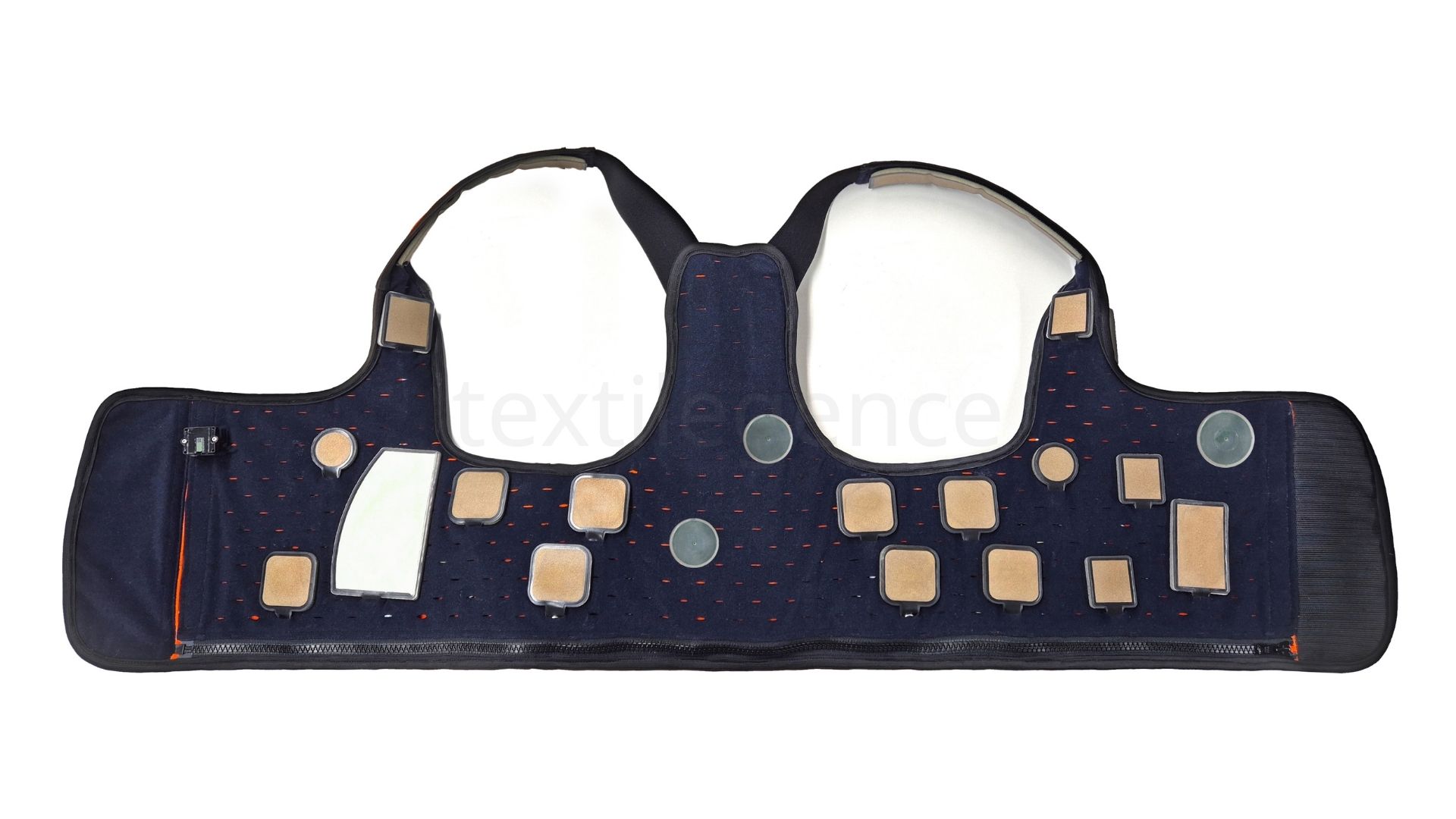The smart textile vest records a vast array of cardiovascular parameters, which an AI-based system uses to support medical diagnostics and spot potentially dangerous developments. Fraunhofer IZM has created a smart sensor system in cooperation with the Charité and the Technical University of Berlin. Fraunhofer IZM will be showcasing the system at Compamed 2025, the leading medical technology expo, coming to Düsseldorf between 17 and 20 November.
Cardiovascular diseases cause a large proportion of deaths worldwide and if they are detected in time, the chances of successful treatment are good. But long waiting lists or simply long distances for patients to see cardiac specialists often prevent an early diagnosis. Even for patients in the system, a cardiovascular problem means long and detailed analyses and regular visits to their doctor, in a local clinic or at a hospital. The sensor system using in this vest can monitor cardiovascular health in a gentle, non-invasive way, thus offering an effective solution to these problems.
AI support for diagnostics and medical risk assessments
The hardware is integrated into a smart textile vest that the patient can easily slip on and that can even be laundered. Inside the vest, there are sensors picking up more than 110 parameters, with a thousand measurements each taken every second. This makes the vest the world’s first system to capture such a large range of diagnostic parameters at the same time, and all of that continuously. On top of this information, a chatbot is at hand to ask the patient about any symptoms or issues they may be experiencing.
The platform is supported by a mobile edge computing module that processes the signals locally and can transmit the data wirelessly. The newly developed hybrid analytical framework combines conventional methods for processing sensor signals with cutting-edge machine learning to level up the quality of the resulting data.
The sensor data, the patient’s statements, and the doctor’s assessment are used by the AI-based system to form not just a likely diagnosis for medical personnel, but also a risk assessment for the patient, based on real-time information. This can give everybody involved crucial support for managing the cardiovascular health of the patient. The system is also expected to improve access to telemedicine services for patients who live in rural areas or have mobility restrictions.
Reliable sensors in a comfortable package
The system uses innovative multichannel smart textile electrodes. To make sure that these work reliable and stay comfortable for the wearer, they come in a biocompatible and semidry form, eliminating the need for a conductive gel that could irritate and dry out the patient’s skin. The wearer simply slips on the vest, and its modular design helps keep the electrodes in the right place for stable signals, whatever shape and size the patient.
The vision is to integrate the entire system in a set of reusable stick-on patches. Made from polyurethane, the thin and dermatologically friendly material will make the system even more comfortable to wear, restrict people suffering from cardiac problems less, and ensure uninterrupted monitoring at the same time.


